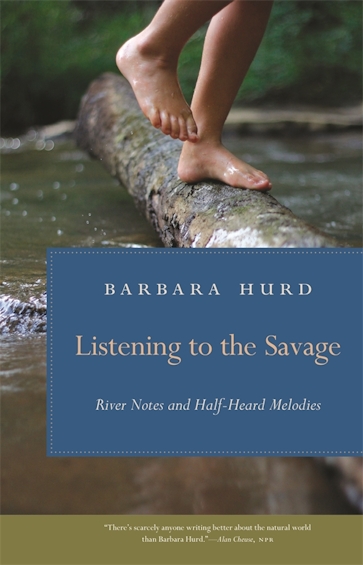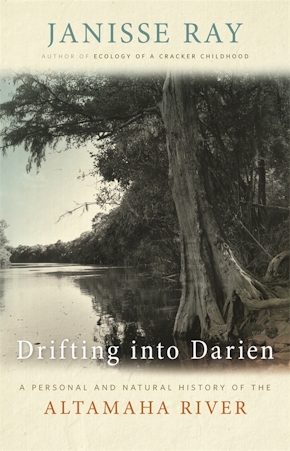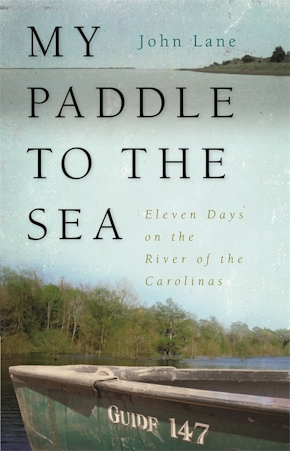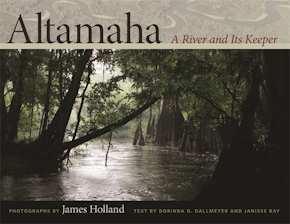Listening to the Savage is a lovely and varied mix of the personal and environmental. The questions with which Hurd grapples could not be more urgent, on both a personal and societal level. The reader emerges having completed an interesting journey with a thoughtful, articulate companion whose curious eye, sensitive ear, and beautiful prose style makes for an unforgettable trip.
—John Tallmadge, author of The Cincinnati Arch: Learning from Nature in the City
Barbara Hurd stalks the wisdom that comes from deep and attentive listening. Whether she’s engaging in rousing conversation with Thoreau or working to hear past the commonplace definition of musical harmony and into complex registers of perception, her drive is always to ‘stitch bits of evidence together into some narrative whole that might enlarge the picture, make the drama more true.’ Part lyrical field guide, part writer’s journal, these generous, meditative essays court ‘finer gradations, clearer distinctions, and better discernment.’
—Lia Purpura, author of Rough Likeness
As with few other nature writers—a small handful of the singing poets, like Mary Oliver and W. S. Merwin—one enters the brilliant desert, blue mountain, what-have-you—with verve and hunger, when Barbara Hurd is the guide.
—Rick Bass
The exquisite
Listening to the Savage is a book to be savored. Barbara Hurd offers an evocative, nuanced reflection on listening and attentiveness, with an exploration that crosses the boundaries of science, history, mythology, poetry, and music. . . . Scant but intense, this is a beautifully produced volume, with a cover photo that appropriately shows a barefoot child carefully balanced on a log above a flowing brook. Follow the meandering of this river, listen attentively to the poetic silencese of this lovely work.
—Kristen Rabe, ForeWord Reviews
The joy of Hurd’s book derives, in part, from the intimacy of the whole enterprise. Hurd’s writing is, at times, so personal and meditative that readers may feel as if they’re eavesdropping, recipients of a secret knowledge. Equally winning is her constant looping back and forth between the natural terrain she observes and the parallels to her own life – and ours – in the 21st century. All this, interspersed with references to the Mozart sonata she’s studying in her piano lessons and to other composers – Pachelbel, Messiaen, Schoenberg and Cage – who have filled the cultural canon. . . . This book about listening proves also to be a surprising adventure. Hurd’s probing mind, her knack for keen questions and her lyrical prose easily pique our interest. Moreover, the author has an engaging sidekick through 3/4 much of the book, her 5-year-old granddaughter, Samantha, who serves as a metaphysical imp. Samantha’s unguarded curiosity and her absurdist patter, as they hike alongside the river, only add to the book’s abundant charm.
—Joan Silverman, Portland Press Herald
If
Listening to the Savage is a call to listen—to reclaim a sense perhaps atrophied by a culture of distraction and ubiquity—it is more siren call than polemic, for the author implores herself, as much as the reader, to do the difficult work of fully inhabiting the world, the mind, and the body. . . . In prose that is stunning, searching, precise, querulous, and revelatory, Hurd demonstrates how attentiveness can be the writer’s best instrument.
—Alexis Paige, Brevity
It is Hurd’s humanity and poetic sensibilities that serve her best as she tries to explore the act of eavesdropping on the world.
—Orion
Hurd makes a habit of listening for quieter signals of disruption among plants and wildlife—the complexities of atonal birdsong, for instance, or the sense of foreboding that arises when a flock of geese, soaring overhead, suddenly plunges to water. This is abundantly evident in Hurd’s personal, meditative prose, which draws parallels between her own sphere and the natural world, offering up rich explorations of literature, family, science, place, and the waning phenomenon of attentiveness itself. Her latest essay collection,
Listening to the Savage: River Notes and Half-Heard Melodies, calls on readers, too, to engage in deep, habitual listening, 'to turn… the ear, that lonely hunter, and put it closer to the ground.'
—Katie O'Reilly, Sierra magazine



